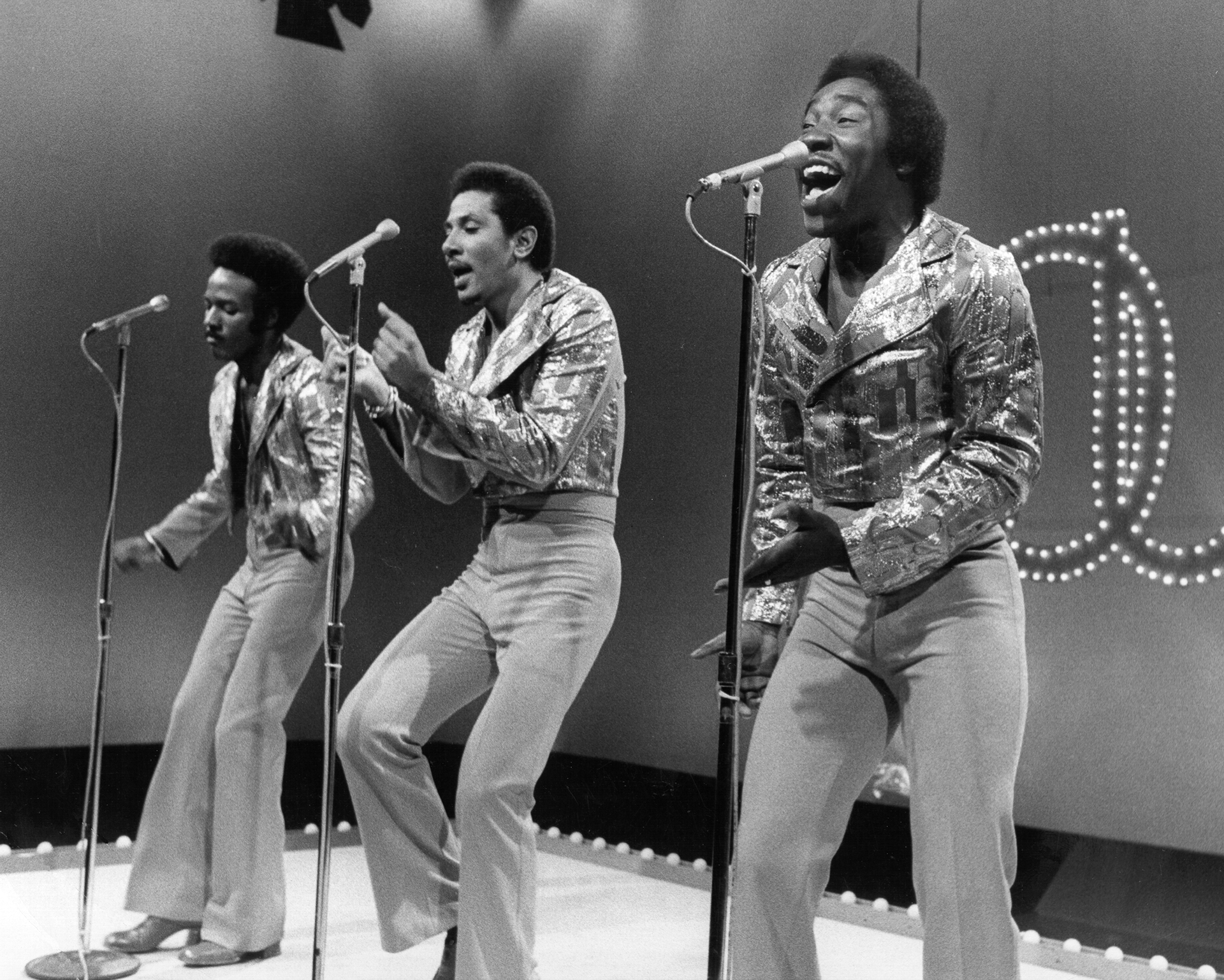Ten disco essentials from Philadelphia – WXPN

Over 40 years removed from its commercial peak and wholesale takeover of the pop cultural zeitgeist, disco’s influence lives on. Even a cursory glance of the last four decades of pop music will reveal that disco’s DNA is still present in a variety of contemporary genres like hip-hop, punk, house, techno, R&B, broken beat, garage, and beyond. Taking an even closer look at disco’s origins, it becomes clear that before the genre took over the world in the late 70s, its defining musical characteristics were forged right here in Philadelphia.
Disco’s sweeping strings were the direct descendant of the Philly soul sound, and the pounding four-on-the-floor drum pattern that defined disco was created by Philly-born drummer, Earl Young. The elegant, uptempo soul records that Kenny Gamble and Leon Huff released on the Philadelphia International label provided a sonic blueprint for disco and a rich wellspring of ideas that future generations of musicians, DJs and producers are still drinking from today.
In honor of disco’s original home and that vast and long-lasting club culture that it helped inspire, here are 10 of the absolute best Philly disco songs of all time.
10) The Trammps – “Disco Inferno”
Released nearly a year to the day before John Travolta’s 1977 blockbuster, Saturday Night Fever, The Trammps’ “Disco Inferno” is commonly associated with the crass commercialization of disco’s entry into the mainstream. Whether or not that correlation is unjust may depend on who you ask, but the song’s stature as a smash hit is undeniable. The song’s inclusion on the Saturday Night Fever soundtrack propelled it to greater commercial heights as it eventually peaked at number one on the Billboard Dance Club Songs chart. Outside of the song’s commercial performance, “Disco Inferno” is a banger. Earl Young’s drums are propulsive and the song’s indelible hook and bass groove make for an earworm for the ages.
9) Instant Funk – “I Got My Mind Made Up”
Once key MFSB members like Earl Young, Bobby Eli, Vincent Montana Jr., Ronnie Baker, and others defected to seminal New York label, Salsoul, they rebranded as The Salsoul Orchestra. Working with Salsoul, MFSB brought a Philly sensibility to a handful of records that would come to define the sound of New York’s club scene. One such record is Instant Funk’s slick club classic, “I Got My Mind Made Up.” Penned by Philly soul legend, Bunny Sigler, the track is built around a minimal vocal chanting: “I got my mind made up. Come on, you can get it…any time. Say what? Tonight is fine”. Once we get to the song’s bridge a full four and a half minutes in, the majestic horns from the intro return and the song elevates into the stratosphere. A certified banger that still works on dancefloors today, “I Got My Mind Made Up” was famously remixed by legendary DJ Larry Levan, further securing its status as a foundational club record.
8) Dexter Wansel – “Life on Mars”
While most of the Philadelphia International crew were highly skilled specialists, Dexter Wansel wore a variety of hats during his tenure with the label. By 1972, he was playing keys as a member of the psychedelic-funk band, Yellow Sunshine, Wansel and working on PIR sessions, playing piano, and programming the Putney synthesizer at Sigma studios. Firmly established as a producer, arranger, and session player, Wansel released his debut album Life On Mars in 1976. An ambitious work of synth-driven cosmic funk, the album’s centerpiece is the 6-minute title track “Life On Mars.” An uptempo monster of a track, the dreamy background vocals, nimble rhythm section, and colorful keys crystalize Wansel’s vision for a futuristic take on the disco sound of the 70s.
7) Billy Paul – “Let ‘Em In”
While it is commonly understood that many of The Beatles’ formative musical influences were Black, the Fab Four’s relationship with Black music was not one-sided. Throughout the 1960s and 70s, Black R&B, jazz, and rock musicians were in constant dialogue with the Lennon/McCartney/Harrison/Starr songbook, covering-and in many instances completely revamping-Beatles’ compositions. This dynamic continued even after the group broke up with one of Philly soul’s most beloved singers, Billy Paul, covering “Let ‘Em In”, by Paul McCartney and Wings. Replacing McCartney’s references to his family and friends, Billy Paul sings the names of prominent, deceased figures in the Black community. This subtle shift transforms the song into a powerful form of ancestor veneration as Billy Paul calls up the names of Louis Armstrong, Medgar Evers, Martin Luther King Jr., and more.
6) Lou Rawls – “You’ll Never Find Another Love Like Mine”
When Chicago-born soul singer Lou Rawls signed with Philadelphia International in 1976, he was already a veteran with over two decades in the music industry under his belt. By this time, the Gamble & Huff machine was at the height of its powers and this partnership would yield one of the best and most enduring songs of the disco era, “You’ll Never Find Another Love Like Mine.” Over a relaxed, cruise ship lounge-evoking groove, Rawls damn near curses an ex-lover, arrogantly claiming that no matter how hard she searches, she’ll never be able to find anyone better than him. An anthem that dominated clubs and radio, the song’s gorgeous strings, brass, and cooing background vocals provide a sweet balance to Rawls’ bitter indignance.
5) Patti LaBelle – “The Spirit’s In It”
If you stopped ten music fans on the streets of Philadelphia and asked them to name the best vocalist that our city has ever produced, the overwhelming majority of people would name Patti LaBelle. Blessed with a distinct timbre, power and a three-octave vocal range, Patti’s has built a storied career navigating the world’s of rock, pop, R&B, and of course, disco. 1981’s“The Spirit’s in It” showcases the strength of Patti’s vocal instrument as she brings the fire of gospel to this uptempo dancefloor burner.
4) The O’ Jays – “Backstabbers”
Part of the magic of Philadelphia International was that the label’s songwriters were equally adept at writing topical songs as they were at creating odes to the ups and downs of romantic love. While PIR’s songwriters would and could focus on broader, macrocosmic political issues, songs like The O’Jays’ “Backstabbers” set its sights on the interpersonal. Backed by grandiose string and brass arrangements and an unstoppable rhythm section, Eddie Levert takes aim at a fake friend who tries to seduce his wife. Wishing “they’d take some of these knives out my back,” Levert and the O’Jays’ masterpiece explores the fragile nature of trust and the gut-wrenching reality of betrayal.
3) Harold Melvin & The Blue Notes – “Bad Luck”
With its addictive bassline and strings, Harold Melvin & The Blue Notes’ 1974 opus “Bad Luck” is emblematic of the Philly disco sound. Former Blue Notes drummer, Teddy Pendergrass, takes lead vocal here with his gruff, textured tenor and lyrics that are the R&B equivalent of Murphy’s Law: Anything that can go wrong, will go wrong. Instead of narrating the misfortunes of a single protagonist, Teddy speaks to the audience broadly; he’s connecting with anyone who’s ever lost love, been broke, or discouraged. While the song’s lyrics are as down and pessimistic as one can get, the bright, soaring arrangement suggests a subtly contrasting sentiment. Even when things are bad, the music points to a bright burst of sunshine waiting behind the darkest clouds.
2) MFSB – “Love Is The Message”
As the house band and orchestra for Gamble & Huff’s Philadelphia International Records label, the MFSB musicians played on numerous Philly soul classics. MFSB’s crowning achievement is the epic disco symphony “Love Is The Message.” With its big string and brass sections and slick, mid-tempo groove, “Love Is The Message” was a Philly tune that was embraced as a Brooklyn block party staple and was a popular track for DJs and rappers in New York hip-hop’s early years. The song also appears in Paris Is Burning, Jennie Livingston’s 1990 documentary on New York’s thriving drag/Ballroom scene. Whether one considers the original version or Danny Krivit’s white-hot edit, “Love Is The Message” is a beloved classic that ranks among the most influential club records ever.
1) McFadden & Whitehead – “Ain’t No Stopping Us Now”
By 1979, the city of Philadelphia found itself saying goodbye to a decade marked by gang violence, organized crime, and the brutally repressive Rizzo administration. No song better encapsulated the optimism of the day and never-say-die spirit of the city than McFadden & Whitehead’s “Ain’t No Stopping Us Now.” A veritable celebration on wax, “Ain’t No Stopping Us Now” is an impossibly funky and catchy dose of pure motivation. With resilience as its thematic engine, the track embodies the uplifting sound of Philly soul and disco.
Honorable Mentions
The O’ Jays – “I Love Music”
Teddy Pendergrass – “Get Up, Get Down, Get Funky, Get Loose”
The Jones Girls – “Nights Over Egypt”
Harold Melvin & The Bluenotes – “Don’t Leave Me This Way”
First Choice – “Let No Man Put Asunder”

:quality(85)/cloudfront-us-east-1.images.arcpublishing.com/infobae/ADDUWDKLWFDOHA3JQYZ4S66NEQ.jpg)


